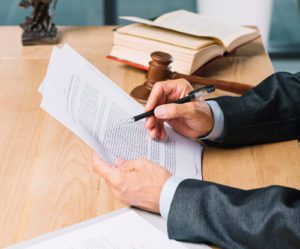 The Court continued in relevant part: Police must have particularized suspicion in order to conduct an investigatory stop, and the duration of an investigative stop must be limited in time and scope to the purpose that justified the stop in the first place. If the officer’s conduct is more intrusive than necessary, the investigative stop turns into a de facto arrest. Once it was determined that Shaw was unarmed and had no outstanding warrants, there was no particularized suspicion that Shaw was engaged in criminal activity that would justify Shaw’s further detention. Under the circumstances here, isolating Shaw in the back of a patrol car despite a negative warrant check was a de facto and an unlawful arrest.
The Court continued in relevant part: Police must have particularized suspicion in order to conduct an investigatory stop, and the duration of an investigative stop must be limited in time and scope to the purpose that justified the stop in the first place. If the officer’s conduct is more intrusive than necessary, the investigative stop turns into a de facto arrest. Once it was determined that Shaw was unarmed and had no outstanding warrants, there was no particularized suspicion that Shaw was engaged in criminal activity that would justify Shaw’s further detention. Under the circumstances here, isolating Shaw in the back of a patrol car despite a negative warrant check was a de facto and an unlawful arrest.
It was during that period of unlawful detention that Shaw stated there was marijuana in the bag. To decide whether to suppress a statement obtained after an unlawful arrest, courts consider three factors: the temporal proximity of the arrest and the confession, the presence of intervening circumstances, and, particularly, the purpose and flagrancy of the official misconduct. Here, Shaw’s confession was a product of his unlawful de facto arrest and must be suppressed. Shaw’s confession occurred during his unlawful detention, and the Court is not persuaded that the presence of the drug-detection canine purged the taint of the illegal arrest. Shaw was never informed of his right to remain silent and was held without individualized suspicion. Although his confession was not made in response to an interrogation, the Court is not convinced it was a product of his own free will.
The Court next addresses Shaw’s standing to challenge the search of the tote bag. Whenever a defendant is charged with committing a possessory drug offense — as in this case — standing is automatic, unless the State can show that the property was abandoned or the accused was a trespasser.
The automatic standing for possessory offenses is a right afforded under our State Constitution that is not afforded under our Federal Constitution. The New Jersey Attorney General’s Office has sought to overturn this rule for many years.
